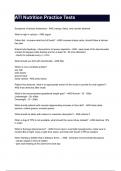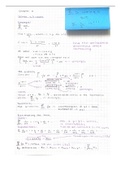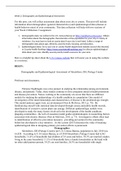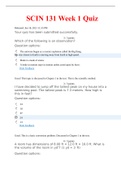Samenvatting
Summary Eduqas Ethics Revision Grids
- Vak
- Instelling
- Boek
Eduqas Ethics A-Level Revision Grids! This is a quick summary of ethics topics that are AMAZING for revision! There are explanations, quotes, scholars and keywords; all condensed into one document! The topics included are: Situation Ethics, Utilitarianism, Ethical Egoism, The Divine Command The...
[Meer zien]










